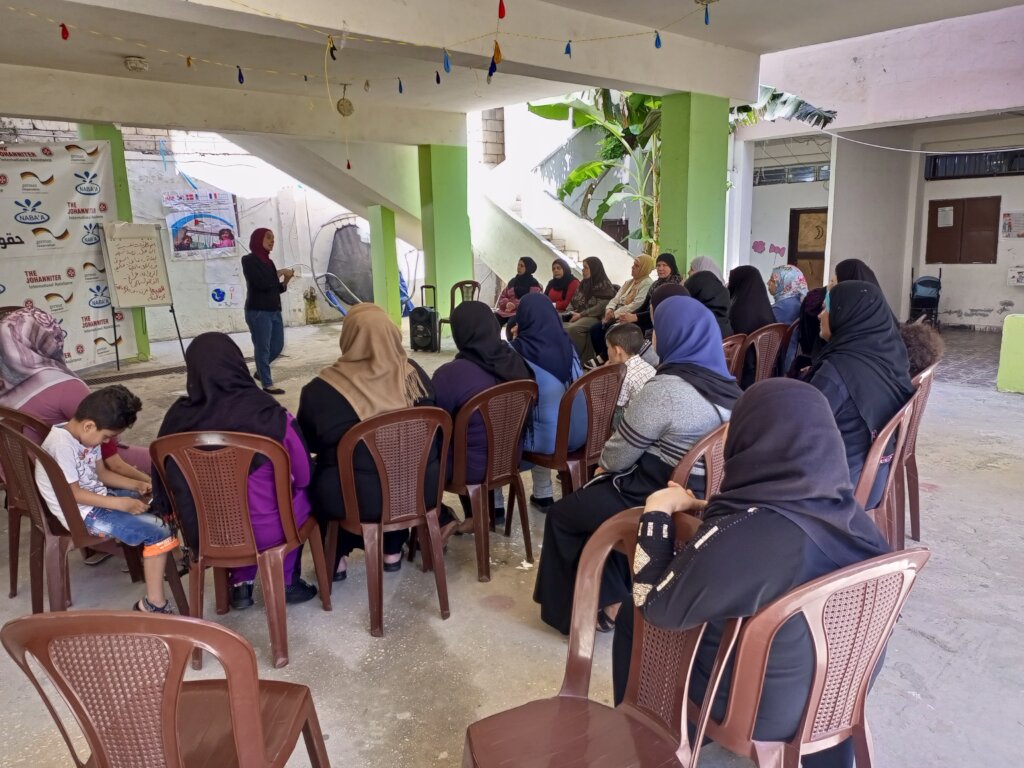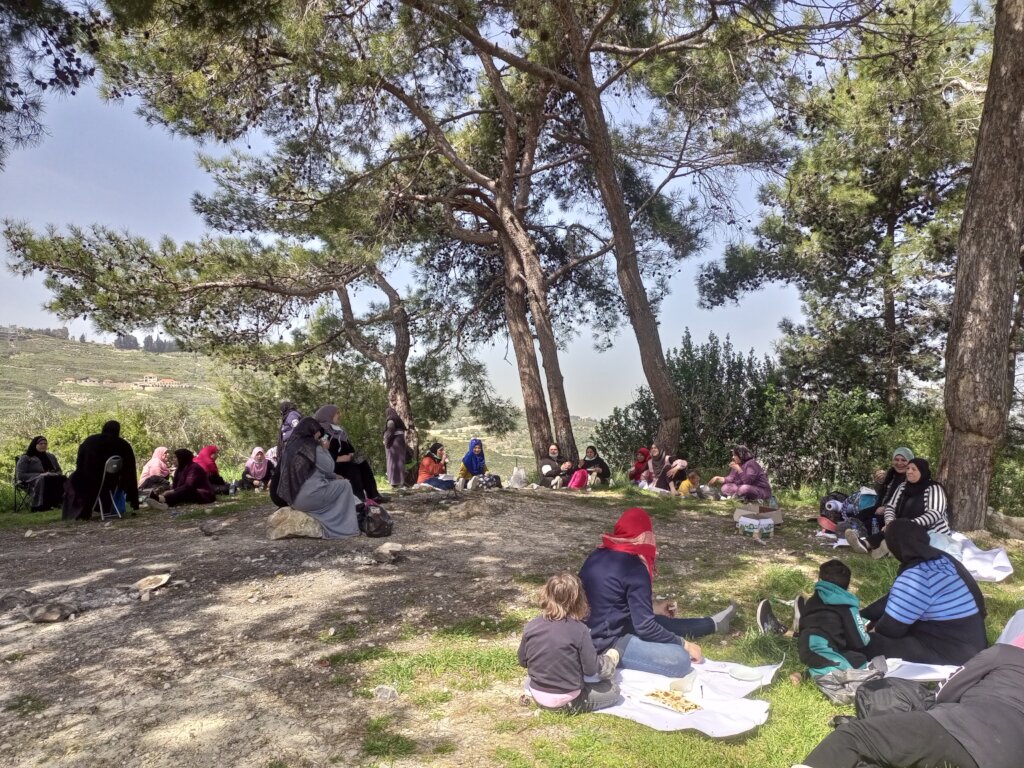By Hiba Hamzi | Program Coordinator
Background during and after the implementation of the project;
Lebanon, which shares a border with Syria, has an estimated 1.1 million refugees, both Syrian refugees and about 450,000 Palestinian refugees, many of whom were born in Lebanon and have been displaced. With a total population of only 4.4 million, the massive 25% increase means a strain on already deteriorating resources and space as well as an overall impact.
Walking into a refugee camp is like walking into a desperately overcrowded slum. The camps are only one kilometer long and accommodate between 25,000 and 37,000 people. Refugees struggle for even the most basic of needs. For electricity, families must string live wires to dozens of other wires, above the tiny walkways around the settlements. Every few weeks, someone gets electrocuted. Many houses are about to collapse, and most people needing care are not able to access hospital treatment. Those most seriously ill die.
Conditions in the camps are extremely challenging, with no clean water and high rates of violence against women and children. Inhabitants of the camps are in constant danger from exposed live electrical wires, a daily threat as the government refuses to supply electricity to the camps. Many refugees cannot get jobs. They are excluded from about 70 jobs including taxi drivers, according to Global Fund for Women grantee partners Tadamon and Palestinian Women’s Humanitarian Organization, leaving primarily menial labor like plumbing, cleaning, or construction available to them. Lebanese law does not extend citizenship rights to Palestinians or Syrians living in the country, limiting access to public healthcare and education in addition to jobs and increasing social harassment and stigma for refugees.
Naba’a Achievements; During the last period, The most highlighted achievements during the last period;
- We at Naba’a are doing all we can to help all affected communities during this extraordinary crisis. Our assistance efforts go to all: Lebanese, refugees and others who were affected without distinction. The devastating impact of the explosion is compounding the challenges currently faced by Lebanese and refugees and adding even more difficulties as families were struggling to survive with the economic crisis that was exacerbated by the impact of COVID-19.
- Naba’a provided cash assistance for 283 family distributed as 225 in Borj Hammoud and 58 in khandaa along with distributing disinfection / hygiene kits for 1050 families in Beirut and south. Where 150 families in Ein EL Helwi, El Buss, Burj Al shamali and Rachidie camps received hygiene kits in addition to 900 families in Beirut. As for food kits, 225 families in Mie and Mie area and Saida al Balad have provided with Food kits as well as 75 families in Ein El Helwe. Whereas, 306 families in Beirut have received food kits and distributed as 306 families in Khandaa in 900 in Borj Hammoud.
Code: S-H-f 001
Date of Birth: 1981 years
Nationality: Lebanese
Family members: two wives and 4 children
Address: saida- Masalkhieh
Phone number: 70440701
Background:
The man is married to H-K who was born in 1982 and has multiple sclerosis and a virus in her brain which makes her unable to move or fulfill her responsibilities towards her three children of ages (13-14-17). Indeed, she is in need of continuous therapy which urged her husband to marry another woman, S-B, who is born in 1992. The main reason behind his second marriage is having someone at home who can assist his sick wife and take care of his children. His second wife now has a daughter aged two months.
The family lives in a house of 3 rooms which has a high humidity and cracks in its ceiling and walls similar to all other houses in Saida old Town.
Economic Situation:
The financial condition of the family is dire especially that the sick wife’s therapy is expensive reaching one million and a half beside the costs of the children’s necessities, including diapers, milk and school fees. Consequently, the father works more than 12 hrs. in a mini café in his neighborhood and receives 100,000 L.L as a daily wage which does not cover all his needs, which urges his three sons to work at neighboring markets after they finish school. To clarify, the three children feel responsible for keeping a roof over the family’s head and securing the medications of their mother, especially that the family does not receive neither medical nor financial aids from the Lebanese ministry of health and NGOs.
Health condition:
First wife: suffers from multiple sclerosis and has a virus in her brain which makes her incapable of moving and exerting effort. She lives on medications, including Fambrya 382,000 L.L, Tecfidera and others of value 1,500,000 L.L .
Second wife: has a daughter of age two months who has to be breastfed. To emphasize, this makes the mother in need of good nutrition and vitamins.
Husband: has a spinal disc which makes him incapable of exerting effort.
Social condition
The family has a strong bond, yet there is undoubtedly sensitivity and jealousy between the two wives as the sick wife feels helpless despite the fact that she tries to stay strong for her three children.
Issues that the Family Struggle with: dire financial condition – sickness- child labor.
Data collection: achieved through paying home visits to the family and meeting the husband and his wives.
Intervention: Providing the family with 3 food kits for 3 months
Recommendations:
Links:
By Hiba Hamzi | Program Coordinator
By Hiba Hamzi | Program Coordinator
Project reports on GlobalGiving are posted directly to globalgiving.org by Project Leaders as they are completed, generally every 3-4 months. To protect the integrity of these documents, GlobalGiving does not alter them; therefore you may find some language or formatting issues.
If you donate to this project or have donated to this project, you can receive an email when this project posts a report. You can also subscribe for reports without donating.
Support this important cause by creating a personalized fundraising page.
Start a Fundraiser
